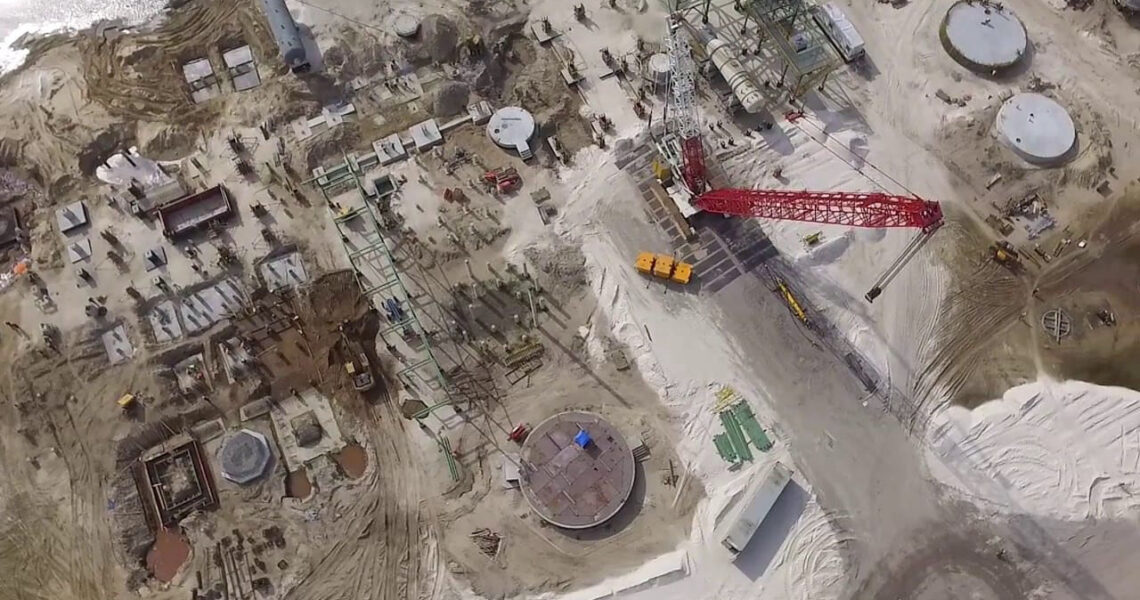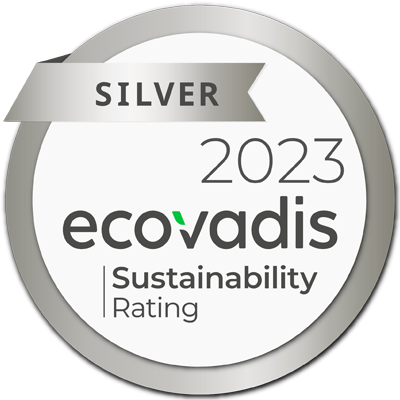Project Name: Edo Fertilizer Plant and Chemical Company
Location: Nigeria
Company/client: Saipem and Dangote Group
Tratos and Saipem & Dangote Group cooperation
Tratos has supplied low voltage power cable to support the construction of the biggest fertilizer project in Africa. The plant, located in Edo State, Nigeria, uses the country’s gas resources as a raw material in the Ammonia-Urea fertilizer process. The project makes the country self-sufficient in its production, negating the need to import fertilizer.
Tratos’ was pleased to cooperate with Saipem, which built the fertilizer plant for the Dangote Group. Saipem and the Dangote Group have a track record of successful collaboration. Saipem has been conducting operations in Nigeria for more than 50 years. The Dangote Group is one of the most diversified business conglomerates in Africa.
Inaugurated in August 2017, the Edo State Fertilizer and Chemical Company Limited (ESFCCL), has the capacity to produce about 60,000 metric tonnes of fertilizer per annum, and created at least 5oo direct jobs.
Starting from 2018, this company has produced enough fertilizer to serve farmers within the state and neighbouring states.
Tratos is delighted to be part of this endeavour to boosting farming activities as well as develop the agriculture value chain in Nigeria, thus contributing in achieving the UN Global Goals.
Edo State – The Heartbeat of Nigeria
Edo State is a state in Southern Nigeria. Founded on 27 August 1991 it has an area of 17,802 km². Its capital is Benin City. The 2014 estimated population of the Edo state is 5 million people. It is made up of 4 major ethnic groups; namely the Bini, Esan, Owan, and Etsako.
The Mid-Western Region was a division of Nigeria from 1963 to 1991, formally known as Bendel state from 1976. It was formed in June 1963 from Benin and Delta provinces of the Western Region, and its capital was Benin City. It was renamed a province in 1966, and in 1967 when the other provinces were split up into several states, it remained territorially intact, becoming a state.
During the Nigerian Civil War, the Biafran forces invaded the new Mid-Western state, en route to Lagos, in an attempt to force a quick end to the war. While under Biafran occupation, the state was declared as the “Republic of Benin” as Nigerian forces were to retake the region. The republic collapsed a day after the declaration as Nigerian troops overtook Benin City. Edo State was formed on August 27, 1991 when Bendel State was split into Edo and Delta States.
The importance of fertilisers in achieving the UN global Goals
In addition to light, carbon dioxide and water, plants need essential nutrients to grow, which can come from the soil and organic and mineral fertilizers. Mineral fertilizers contain concentrated, consistent and readily available nutrients, and enable farmers to grow more on less land. Without them, world agricultural production could fall by as much as half and it would not be possible to feed the global population.
Fertilisers achieve more than food security: they play an important role in achieving several of the UN Global Goals , including but not limited to:
- Goal 1 – No Poverty;
- Goal 2 – No Hunger;
- Goal 5 – Gender Equality;
- Goal 6 – Sustainable Management of Water;
- Goal 9 – Sustainable Industrialization;
- Goal 13 – Climate Change;
- Goal 14 – Clean Oceans;
- Goal 15 – Life on Land.
Fertilizers provide crops with the nutrients essential for their growth and health, which helps increase crop yields and food production. Achieving global food security today and in the future cannot be achieved without fertilizers.
Micronutrient-enriched fertilization is considered one of the most promising ways to fight malnutrition, and to alleviate nutrient deficiencies worldwide, especially for zinc, selenium and iodine.
Fertilizers contribute to climate change mitigation through preventing deforestation and increasing soil carbon sequestration.
Adequate and affordable access to fertilizers allows subsistence farmers to produce a surplus that they can sell, using the income to not only buy additional food for their families, but also send their children to school and pay for health care.
Participating in this project, Tratos has been able to support achieving UN Global Goal 9: Build resilient infrastructure, promote sustainable industrialization and foster innovation, Goal 7 to ensure access to affordable, reliable, sustainable and modern energy for all, GOAL 3: Good Health and Well-being, and Goal 11: Sustainable Cities and Communities.










